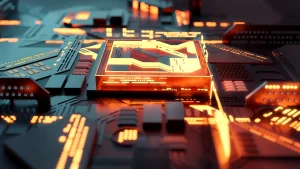Computer gaming in the UK has grown leaps and bounds over the years, becoming an integral part of the nation’s digital entertainment culture. From adrenaline-pumping action games to intricate strategy games, the gaming world has something to offer everyone.
But while gaming provides an escape from reality and a means to connect with others, it also has impacts on the health of our PCs. This blog explores the good, the bad, and the necessary steps to take in order to maintain the longevity of our computers.
The relationship between gaming and PC health is a delicate balance. While gaming can drive advancements in computer technology, pushing the boundaries of what our PCs can do, it can also put a lot of strain on our systems. In this post, we’ll delve into the different ways in which gaming affects PC health and how to best manage them.
The Growth of Computer Gaming
Computer gaming has come a long way since the days of Pong and Space Invaders. The evolution from 8-bit games to the realistic and immersive virtual worlds we see today is nothing short of phenomenal. Here in the UK, gaming has become a multi-billion-pound industry, fuelled by innovative game developers and an enthusiastic and growing community of gamers.
Alongside the growth of the industry, the technology powering these games has seen massive advancements. Developers are constantly pushing the boundaries of what games can do, creating ever more complex and visually stunning experiences.
This has driven a corresponding increase in the capabilities of our PCs, with more powerful processors, superior graphics cards, and faster memory all becoming commonplace.
How to Mitigate the Negative Impacts of Gaming on PC Health
Fear not, intrepid gamers! There are several ways to mitigate these potential issues and keep your PC in good health. Regular hardware maintenance is crucial – cleaning your PC to remove dust and ensuring all components are functioning correctly can help prevent overheating and extend the lifespan of your computer. It’s also important to have a good ventilation or cooling system in place, especially if you’re a fan of marathon gaming sessions.
Software-wise, it’s important to protect your computer from potential threats. Installing reliable anti-virus software and keeping it updated can help you avoid game-related malware. In addition, regular software updates and patches for your games are not just about adding new features or fixing bugs; they often include improvements to the efficiency of the game, reducing its impact on your system.
Finally, consider scheduling regular breaks during your gaming sessions. This can allow your computer fan to prevent overheating and also has the added benefit of being better for your own health!
Conclusion
In the captivating world of computer gaming, it’s easy to lose track of time and forget about the demands we’re placing on our PCs. However, as we’ve explored in this post, it’s essential to maintain a balance.
The push for better graphics, more realistic gameplay, and more immersive experiences can lead to significant advancements in computer technology. Yet, these advancements come with challenges that we must manage to ensure the longevity of our gaming PCs.
Remember, it’s not all doom and gloom. With a bit of regular maintenance, a well-ventilated or cooled gaming setup, updated software, and an understanding of the importance of taking breaks, we can keep our PCs healthy and enjoy our gaming experiences to the fullest.
After all, a well-cared-for gaming PC is the key to many happy hours exploring new worlds, completing epic quests, and connecting with fellow gamers around the globe.
Balancing the thrill of gaming with the health of your PC may seem like a daunting task, but it’s a necessary one. With the right knowledge and a little effort, it’s more than possible to enjoy the best of both worlds. So, game on, and may your framerates be high and your temperatures low.





